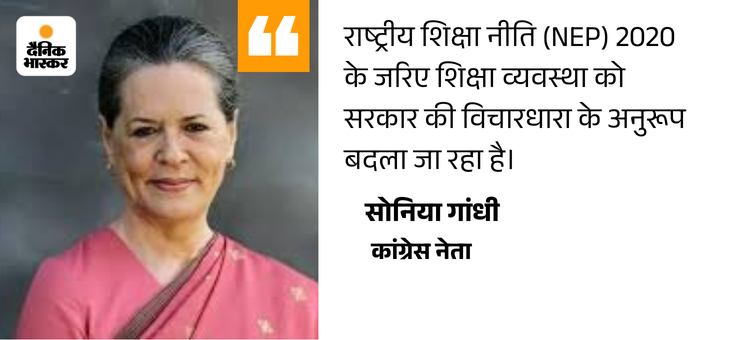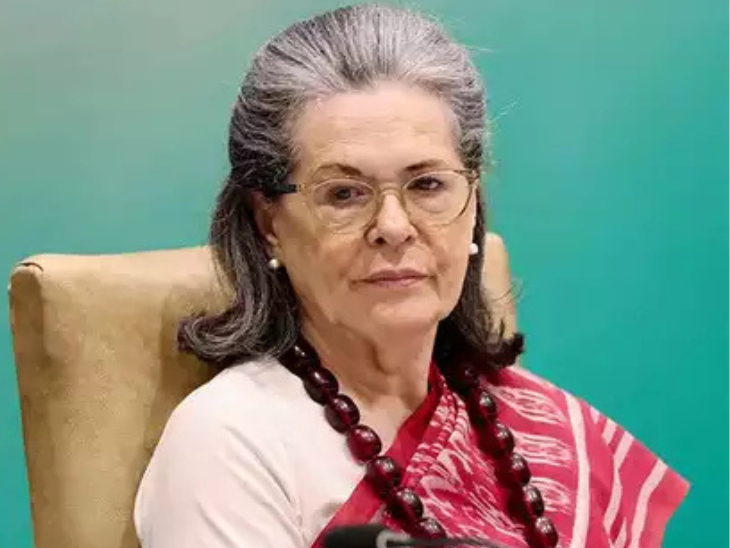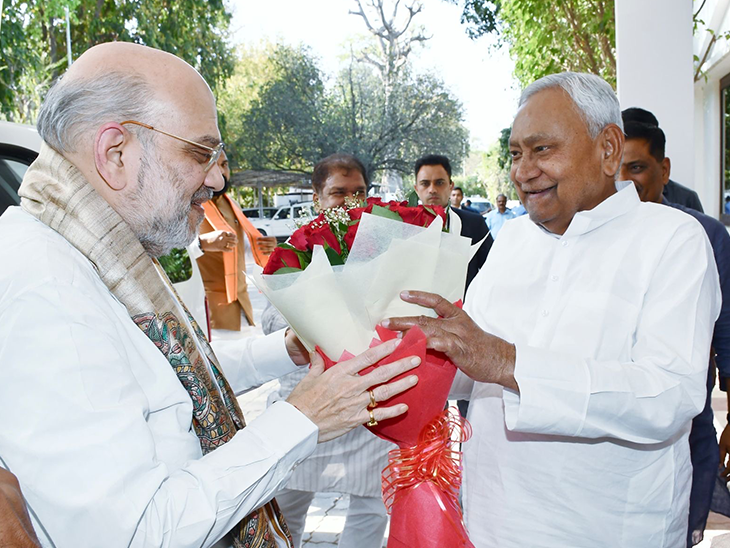New Delhi3 minutes ago
- Copy link

Sonia Gandhi wrote – The education policy shows the deep apathy of the government towards the education of the youth and children of India.
Congress leader Sonia Gandhi has criticized the National Education Policy (NEP) 2020.
In an article by the English newspaper The Hindu, Sonia Gandhi wrote ‘The Central Government is carrying forward its 3C agenda (centralization, commercialization and communalism) through education policy. The education policy shows the deep apathy of the government towards the education of youth and children of India.

Congress leader Sonia Gandhi’s article published in The Hindu.
4 key things of Sonia Gandhi’s article –
1. Modi government is weakening the structure of education
Sonia, in her article, accused the Center of weakening the federal education structure. Wrote that the Modi government is weakening the federal structure of education by keeping the state governments out of important policy decisions. In the education policy, the central government has taken all the strength in its own hands, and communalism is being spread in syllabus and institutions.
Sonia also accused the state governments of sidelining the decision -making processes for education policy. He informed that the Central Education Advisory Board meeting has not been held from September 2019. Which includes ministers from both the Center and the state.
2. Promoted private schools instead of government schools
Sonia Gandhi alleged that the Central Government has “forced” the state governments to implement the PM-Shree (PM Schools for Rising India) scheme by stopping the grant for the overall education campaign (SSA).
He wrote, these funds have been given to the states as part of the financial assistance required to implement free and compulsory education rights (RTE) Act of children for many years.
The Parliamentary Standing Committee on Education had also called for an unconditional issuing SSA funds.
Gandhi also accused the government of promoting the “uncontrolled privatization” of schooling. RTE had ensured the access to all children to primary schools.
Under this, there should be a lower primary school (class IV) within a kilometer and a upper primary school (class VI-VIII) within three kilometers. NEP weakens the concept of schools in these neighborhoods under RTE by promoting the idea of ”school complexes”.
Since 2014, 89,441 public schools have been closed across the country, while 42,944 private schools are open. In NEP, the poor of the country have been excluded from public education.

3. University is being forced to take loans
He pointed to the new draft guidelines for the University Grants Commission (UGC) in 2025, wrote that the role of the state governments in the selection of vice -chancellors in state universities has almost been abolished. This is a serious threat to federalism.
In higher education, the Central Government has launched the Higher Education Financing Agency (HEFA). Universities are being forced to take loans at market interest rates from HEFA. Which states will have to repay later from their revenue. Students have to face an increase in fees to repay the loan.
In its 364th report on the demand for grant, the Parliamentary Standing Committee found that 78% to 100% of these loans is being paid by universities through student fees.
4. Government is spreading hatred through education system
Sonia Gandhi accused the government of spreading and promoting hatred through the education system. He alleged that important parts related to history have been removed from the books of the National Council of Educational Research and Training (NCERT).
The parts associated with the murder of the Mughal period and Mahatma Gandhi were expelled from the syllabus, but after the public protest, the preamble of the Constitution was added back. Criticized the appointment of members on the basis of ideological ideas rather than educational qualifications.
He wrote, “Leadership posts in major institutions have been reserved for dabble ideologies,” he warned that reducing the qualifications for professors and vice -chancellors is part of this agenda.

The Chief Minister of Maharashtra said – Sonia should get more information
While commenting on Sonia Gandhi’s article, Maharashtra Chief Minister Devendra Fadnavis said, ‘Sonia Gandhi should get more information and support the’ Indianization ‘of the Indian education system.’ Fadnavis appreciated the new education policy (NEP) and said that NEP is Indianization of India’s education system.
Know why this dispute started
Under NEP 2020, students must learn three languages, but no language has been made mandatory. States and schools have the freedom to decide which three languages they want to teach. There is no provision for the imperative of any language.
It has been recommended to study in primary classes (class 1 to 5) in mother tongue or local language. At the same time, it is mandatory to study three languages in middle classes (class 6 to 10). The non-Hindi speaking state will have English or a modern Indian language. If the second and 12th school wants to give foreign language as an alternative. Many leaders disagreed from NEP 2020.
From the first day of the budget session of Parliament, DMK MPs opposed the new education policy. While protesting, MPs came close to Union Education Minister Dharmendra Pradhan and shouted slogans.

BJP committed to protect Hindi and all other Indian languages - Rajnath Singh
Defense Minister Rajnath Singh said that the tendency to divide the country on the basis of language should end. He said that BJP is committed to protect Hindi and all other Indian languages. “Some people are creating unnecessary controversies about Tamil and Hindi languages.
However, BJP is fully committed to protect Hindi and all other Indian languages and we are working in this direction. There is no competition between Hindi and other Indian languages, but there is a sense of cooperation between them.
Hindi strengthens all Indian languages and all Indian languages strengthen Hindi.















Leave a Reply